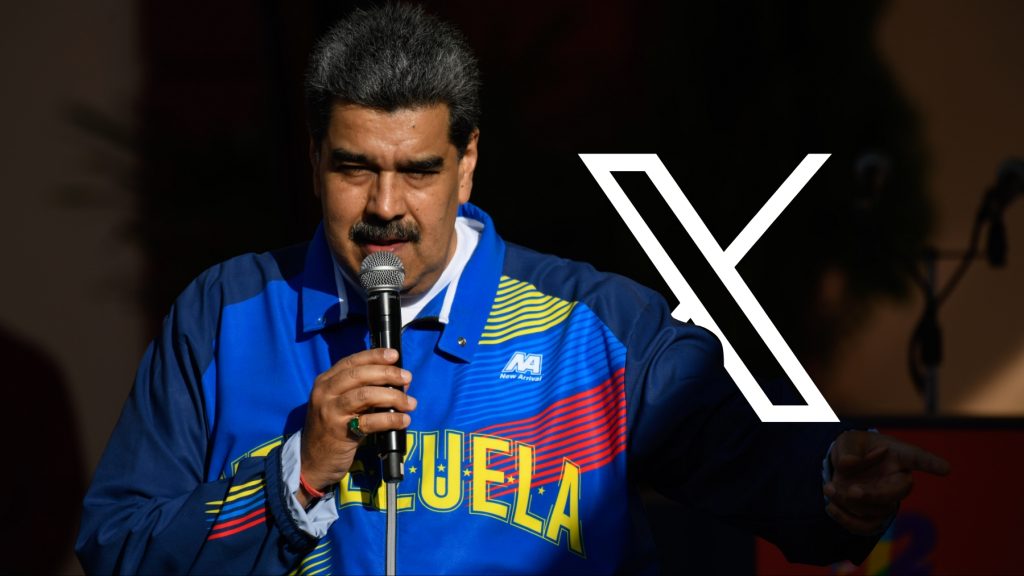
Venezuelan President Nicolas Maduro has decided to ban micro-blogging platform, X (FKA Twitter), in the country for 10 days amid tensions following the country’s presidential elections.
In a televised speech, President Maduro accused X’s owner, Elon Musk, of inciting violence and unrest within the country.
“X, get out of the country for 10 days!” the Venezuelan President declared, alleging that the platform was being used to promote hate and civilian conflict after the elections.
Social Media Battle Between Maduro and Musk
During the speech, Maduro added that Musk, as the owner of the platform, is breaching all regulations related to its operation, stating that “Elon Musk is the owner of X and has violated all the rules of the social network itself.”
The relationship between Musk and the Venezuelan president has witnessed some serious disputes following Maduro’s victory last week.
The tech billionaire has heavily criticized Maduro on his platform, even going as far to describe him as a “donkey”.
In parallel, Maduro has accused the owner of X for taking advantage of the platform to spread hate and incite protests against the government. At one point, their public feud escalated to the point where they both challenged each other to fight, further intensifying their conflict.
WhatsApp Could Be Next
Maduro’s differences extend beyond X, as he also urged Venezuelans to stop using Meta’s WhatsApp, and instead look for alternatives such as Telegram or WeChat.
According to Maduro, WhatsApp has been used also as tool to threaten police officers and soldiers’ families, making it necessary to opt for more more secure platforms.
Despite these allegations, neither Zuck’s Meta nor Musk’s X have commented on the accusations.
Presidential X Social
The conflict began after the presidential election on July 28, where Venezuela’s electoral authority declared Maduro a winner with 51% of the vote. The opposition, however, led by Edmundo Gonzalez and Maria Corina Machado, claimed to have evidence that Gonzalez won the election with over 7 million votes against Maduro’s 3.3 million.
Independent exit polls support the opposition’s claims.
The outcome of the election has sparked widespread accusations of fraud and demonstrations both within Venezuela and among the Venezuelan diaspora. Opposition groups report that at least 23 people have been killed in the protests.
The US, along with Argentina, Chile, and other countries, has refused to recognize Maduro’s win and is demanding transparency and the release of voting counts.
China and Russia have praised Maduro on his victory.
Final Thoughts
Once again, Maduro’s decision is great proof that in today’s age, social media platforms play a path altering role in modern politics. Despite how such platforms facilitate communication and worldwide connection between people, they are also becoming bigger channels for spreading misinformation, provoking harsh public reactions.
Inside Telecom provides you with an extensive list of content covering all aspects of the tech industry. Keep an eye on our Tech sections to stay informed and up-to-date with our daily articles.